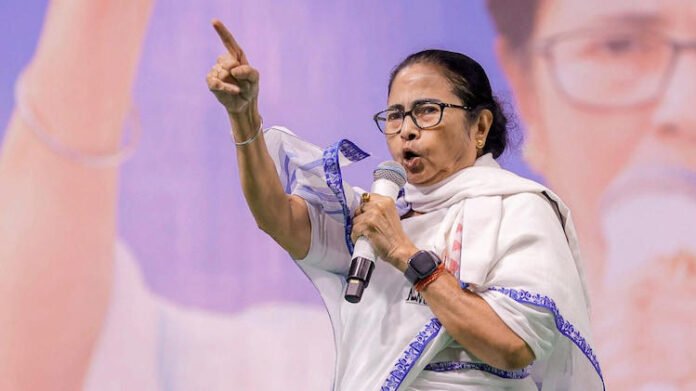West Bengal Chief Minister Mamata Banerjee has once again reaffirmed her staunch opposition to the National Register of Citizens (NRC) and the Citizenship Amendment Act (CAA), declaring that she will not allow their implementation in the state. Her resolute stance comes amidst growing concerns over the exclusionary impact of these policies, particularly on marginalized communities, and reflects her commitment to protecting the rights and dignity of all residents of West Bengal.
In a recent statement, Mamata Banerjee expressed her firm resolve to resist any attempts to implement the NRC and CAA in West Bengal, citing the potential adverse effects on the socio-economic fabric of the state. She highlighted the plight of Hindu Bengalis, noting that the names of 19 lakh individuals from the community had been removed from the National Register of Citizens in Assam, raising concerns about their citizenship status and future prospects.
The removal of the names of such a significant number of Hindu Bengalis from the NRC in Assam underscores the human cost of exclusionary citizenship policies and the need for a compassionate and inclusive approach to addressing complex issues of identity and belonging. Mamata Banerjee’s assertion that she will not allow a similar fate to befall residents of West Bengal reflects her commitment to upholding the principles of equality, justice, and communal harmony.
The NRC and CAA have been contentious issues since their inception, sparking widespread protests and debates across the country. Critics argue that the NRC, combined with the CAA, which provides a path to citizenship for non-Muslim migrants from neighboring countries, discriminates against marginalized communities, particularly Muslims and indigenous groups, and undermines the secular fabric of the Indian Constitution.
Mamata Banerjee’s steadfast opposition to the NRC and CAA aligns with her broader political ideology, which emphasizes inclusive governance and social justice. Throughout her tenure as Chief Minister, she has championed the cause of minority rights and advocated for the empowerment of marginalized communities, including Muslims, Dalits, and Adivasis.
By rejecting the NRC and CAA, Mamata Banerjee seeks to protect the rights and dignity of all residents of West Bengal, regardless of their religious or ethnic background. She has vowed to resist any attempts to sow divisions along religious or linguistic lines and has called for unity and solidarity in the face of attempts to undermine the secular and pluralistic ethos of the state.
Moreover, Mamata Banerjee’s opposition to the NRC and CAA reflects the broader sentiment of resistance among political leaders, civil society organizations, and ordinary citizens across the country. The movement against these policies has galvanized people from all walks of life, transcending regional, religious, and linguistic divides, and highlighting the collective resolve to defend the values of democracy, pluralism, and constitutionalism.
At its core, Mamata Banerjee’s stance against the NRC and CAA is a defense of the inclusive and diverse fabric of West Bengal, which has long been celebrated for its rich cultural heritage and tradition of communal harmony. She recognizes that the implementation of these policies could not only disrupt the social cohesion of the state but also exacerbate tensions and fuel communal polarization.
As the Chief Minister of West Bengal, Mamata Banerjee has a responsibility to protect the interests of all residents of the state and to uphold the values of democracy, secularism, and social justice. Her unwavering opposition to the NRC and CAA is a testament to her commitment to these principles and her determination to safeguard the rights and dignity of every individual, irrespective of their background.
In a nutshell, Mamata Banerjee’s refusal to allow the implementation of the NRC and CAA in West Bengal is a bold assertion of her commitment to inclusivity, diversity, and social justice. Her stance reflects the broader sentiment of resistance against exclusionary citizenship policies and underscores the need for a compassionate and inclusive approach to addressing complex issues of identity and belonging. As the debate over these policies continues, Mamata Banerjee’s leadership provides a beacon of hope for those who believe in the ideals of democracy, pluralism, and equality.

